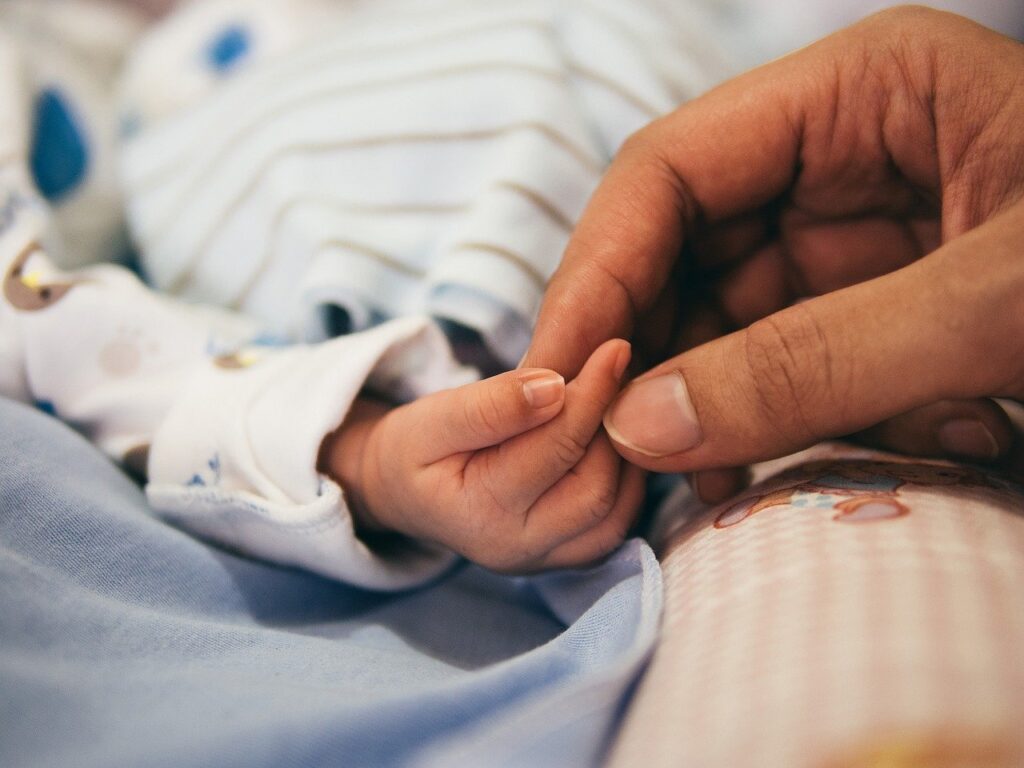If you know of any woman considering becoming a surrogate mom, I implore you, please move heaven and earth to convince her not to proceed.
Really, I mean it, pull out all the stops and tell her in no uncertain terms to steer completely clear of surrogacy, especially if she is being enticed by the sums of money offered in fertility agency ads. Might I also suggest that you send her a copy of “#BigFertility: It’s All About the Money,” a recently released documentary by the Center for Bioethics and Culture, which I just watched over the weekend.
Before I go any further, I must say that I am a huge fan of the work of the filmmakers, the CBC’s Jennifer Lahl and Matthew Eppinette, as I have engaged them both a few times in the past couple of years while reporting on bioethics issues here at The Christian Post. I can always count on them for insightful comments on the most morally complex and sensitive of topics that far too few Christians consider. And last year I interviewed Jennifer about this very film just before she traveled to South Dakota to shoot it. (Full disclosure: I am also a contributor to this project via their Kickstarter campaign).
Regrettably, like so many other large industries, “#BigFertility” effectively explains what the fertility industry is ultimately concerned about no matter how many lives it wrecks: money.
And that wreckage is plentiful and gut-wrenching. Yet all too often, the harms inherent in this industry go unseen because commercial surrogacy is almost always portrayed in U.S. media as a sweet, wonderful thing. Key to this portrayal is the cunning way in which it is marketed, appealing to women who want to “help” someone who for whatever reason cannot have a child on her own, without disclosing any of the serious health risks.
The film recounts in riveting detail the journey of three-time surrogate Kelly Martinez and her husband Jay, a couple originally from Iowa who thought that third party reproduction could be a good option for them. They were economically disadvantaged and wanted to get ahead financially. Kelly had always had relatively easy pregnancies with her own children and because of that did not believe it would be a particularly burdensome venture. But as Lahl often points out, you’ll never hear of a Hollywood celebrity offering to be a surrogate for her low-income housekeeper. It’s the rich who can buy; it is poor women who are the ones selling their eggs and renting out their wombs.
Kelly would soon find out there is much more to it than what the fertility agencies say in their glossy brochures and sophisticated presentations.
In a compelling 45 minutes, Kelly bravely shares her vulnerabilities and hesitations she had as she faced hurdles she didn’t see coming when she signed up to be a surrogate. From firsthand experience she authoritatively exposes the bullying and other abusive dynamics that were set in motion when artificial reproductive operators and their clients became the overseers of her life in such intimate fashion. Because of all the costs and fees associated with these arrangements as the desired baby is essentially being bought, the intended parents — the “buyers,” if you will — get to stipulate their many demands and preferences in the surrogacy contracts. And often their requirements are appallingly slavish. The surrogate mothers have no choice but to obey them if they want to be compensated.
Kelly’s first surrogate pregnancy was for two men — using a donor egg from an unnamed woman — from France who gave the impression they were legally married when they were not and who asked her to be deceptive in the mountains of legal paperwork in order for them to take the child back to Europe.
Although it was a difficult ordeal, Kelly opted to become a surrogate a second time, this time using the intended mother’s egg and intended father’s sperm. She thought it would be better than the first go round because the couple was from the same state and the paperwork and politics that come with transactions across international borders would not be an issue, and the additional money was a needed bonus. But while the second surrogate pregnancy was relatively normal, the intended mother fell gravely ill as a result of the egg extraction process and almost died, causing Kelly great psychological distress. That couple is now divorced, compounding the trauma.
But the third surrogacy was by far the most horrifying and the film spends considerable time explaining how it went in detail. A couple from Spain that liked Kelly’s online profile hired her to be their surrogate and they paid the fertility agency for twins, a boy and a girl. Kelly was never informed of this and after the embryos were implanted, the female embryo split off and the male embryo divided. She was pregnant with twin boys, and although it was not Kelly’s fault the Spanish couple became furious with her.
Then they put her through pure hell. I really don’t want to give too much away here, but the things they said and did were staggeringly awful.
Once the babies were born the couple took them home to Spain, and Kelly almost died as a result of the medical complications that happened with this pregnancy and ended up being saddled with thousands of dollars in medical debt. Creditors began harassing her for the money because although the fertility agency said they would pay for it all, they did not, and the charges were in her name. The agency only paid the bill when the Martinezes threatened to come to Spain along with Lahl, whom I’m sure they fear and loathe.
Lahl is to be commended for her tireless work on behalf of Kelly and others.
Interspersed between Kelly and Jay’s accounts of the events, she supplies expert commentary explaining how these systems often work, drawing upon her background as a pediatric critical care nurse, hospital administrator and bioethicist. The bottom line is that the fertility industry profits handsomely off the bodies of women, and there is much money to be made with every procured pregnancy. Monetizing the womb, Lahl stresses in the movie, is not an ethical nor healthy approach to real fertility medicine.
And Kelly’s story is not particularly unique, she explains. Aspects of her ordeal mirrors those of many women who have been similarly exploited. These women reach out to Lahl in desperation because they have nowhere else to turn.
“#BigFertility” concludes by forcefully asserting why surrogacy is not only unwise but is an injustice, a gross human rights violation.
I concur completely.
Surrogacy is indeed a form of child trafficking that enslaves women, treating them as though they are livestock to be bred for the desires of the wealthy. No matter how cutting edge the medical technology and carefully worded the legal contracts, there is simply no ethically right or noble way to do it. Additionally, it represents the very worst of predatory capitalism, exploiting the economically disadvantaged who are often racial minorities. Human beings are not commodities to be rented, bought and sold. Every Christian should vigorously oppose it, and I must add here that it distresses me greatly to encounter so many sincere believers who have never thought through this issue and its implications.
Our society rightfully forbids a pregnant woman from selling her baby to would-be parents after the child is born, yet somehow has no objection if cash-seeking lawyers and businessmen book a woman’s uterus for a baby pre-pregnancy. This is scandalous.
When testifying earlier this year in Washington state against a bill legalizing commercial surrogacy (which passed and was signed into law, unfortunately), Lahl recounted her interactions with the many women she knows who have been gravely damaged in these arrangements.
She inquired of legislators (see video), urging them to reconsider the legislation: “How many? How many children must be harmed? How many women must be harmed?”
We should all be asking ourselves such questions.
by Brandon Showalter
#StopSurrogacyNow
Unmasking the Horrors of Rent-a-Womb Inc.: A Review of “#Big Fertility: It’s All About the Money” – The Center for Bioethics & Culture Network (cbc-network.org)
GIVE NOW to the Center for Bioethics and Culture Network (CBC)
By Jennifer Lahl, Founder and President of The Center for Bioethics and Culture, Original Signer of the Stop Surrogacy Now Petition.
HELP THE CBC —-> GIVE NOW


